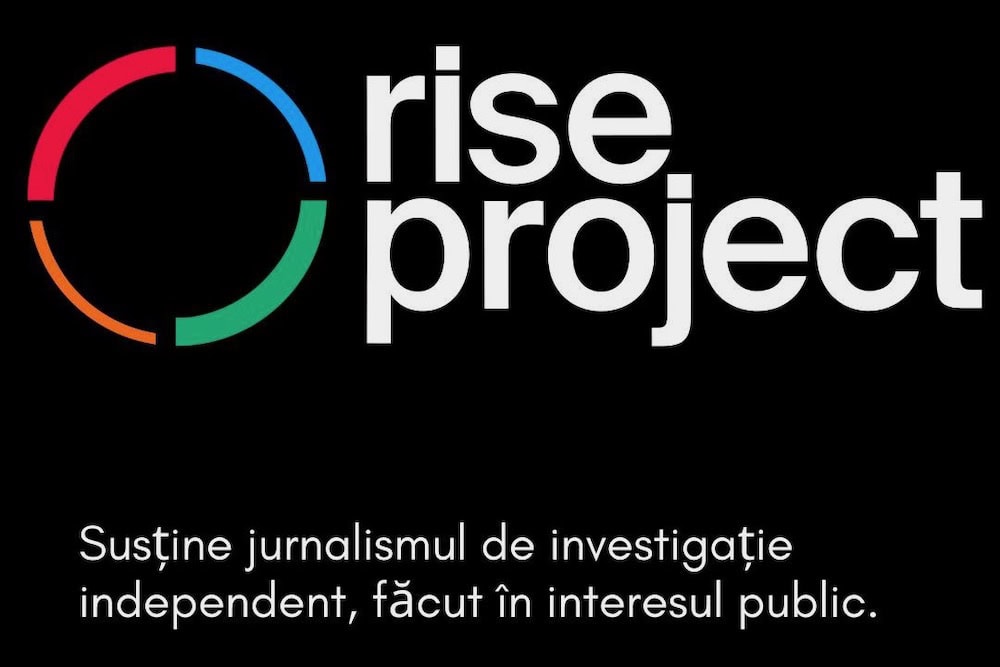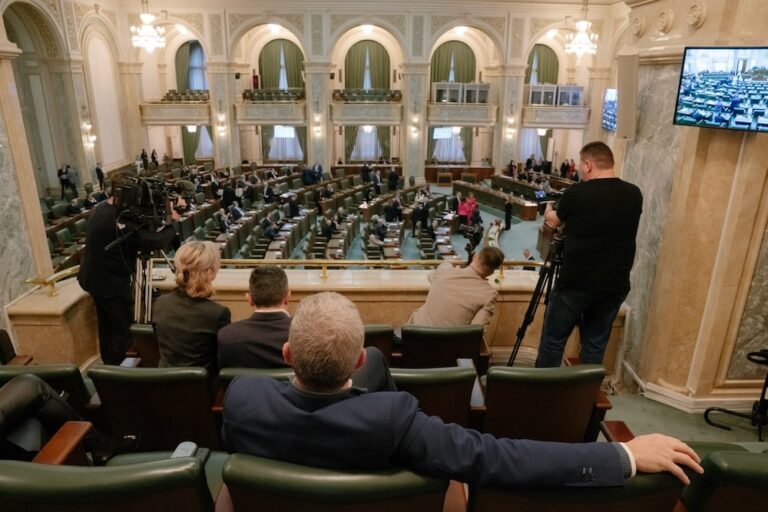A group of organisations that promote press freedom and good governance and representative media outlets are protesting a DIICOT [Directorate for Investigating Organized Crime and Terrorism] prosecutors' decision to ask Rise Project journalists to reveal their sources.
Update 18 July: Rise Project has been informed by DIICOT that the order has been overturned, but the overturning was done solely for procedural reasons – https://www.facebook.com/share/p/9oYbVaJEW4mSCiYq/
Update 18 July: Reporters Without Borders reacted with message on social network X

Update 22 July: The Prosecutor’s Office of the High Court of Cassation and Justice responded to our public letter.
[This is a translation of the original.]
July 18, 2024
Open letter
Attention:
The Attorney General of Romania, Mr. Alex Florin Florența
Chief Prosecutor of DIICOT, Mrs. Alina Albu
To the Judicial Inspectorate,
The Superior Council of Magistracy,
Minister of Justice, Mrs. Alina Gorghiu
Dear Madam, Dear Sir
We consider the way in which the Caras-Severin DIICOT prosecutors are putting pressure on Rise Project journalists, asking them to hand over to the prosecution authorities information obtained from their journalistic research, unacceptable for a state based on the rule of law.
Rise Project journalists have recently published a series of investigations showing how thousands of Asians end up on the streets in Romania, abandoned by the recruitment firms that brought them here, and decide to flee to other European countries through migrant smuggling networks. The journalistic investigation took place in parallel with the prosecutors’ investigation, according to Rise Project journalists, and revealed that one of those under investigation for migrant smuggling is related to the head of the Timisoara Organized Crime Squad (BCCO), a unit that supports the DIICOT investigations, and that there are also family and friendship ties between the head of the network and other employees of the Interior Ministry.
The journalists were first summoned as witnesses, and then the chief prosecutor of the DIICOT Caraș-Severin Territorial Office, Carmen Vrânceanu, issued an order requesting “the independent community of journalists RIJE (RISE) PROJECT to hand over the data in its possession or under its control, which were the basis of the journalistic materials entitled “The Migrant” Affair (I, II and III)”.
The action taken by the Caras-Severin DIICOT prosecutors is abusive, contravenes the European and Romanian legislation and case-law and violates the rules of journalistic ethics.
The protection of journalistic sources is both a legal privilege and a professional obligation for journalists. The case law of the European Court of Human Rights, which, according to the Constitution, is part of Romanian domestic law, has a rich case law on journalists’ right to protection of sources. Domestic legislation also establishes this professional privilege as such – the audiovisual law, the Agerpres law, the SRR-SRTV law. The new European regulation on media freedom also guarantees the protection of journalistic sources.
This right to the protection of sources may be restricted only where it is shown that there is a demonstrable need to protect an overriding public interest (e.g. if national security or the proper conduct of a criminal investigation is jeopardized) but only if the interference with journalists’ rights is proportionate (e.g. if the investigating bodies have exhausted all other methods of clarifying the facts).
In the case at hand, the prosecutors have not demonstrated that their requirement fulfills principles such as those mentioned above, as evidenced by their demand that journalists hand over to the criminal investigation bodies absolutely all documents that formed the basis of the journalistic investigations. We emphasize that it is not the role of journalists to turn themselves into criminal investigation bodies, and that forcing them to cooperate with prosecutors and police is a violation of the fundamental rights to freedom of expression and freedom of the press, which cannot be accepted without carefully and clearly grounded legal decisions reviewed by independent authorities.
This is not the first time that DIICOT prosecutors have harassed journalists and jeopardized the protection of journalistic sources. Cases include those of the journalist Alin Cristea and the editorial teams of Libertatea and Newsweek. There are many other cases that have not become public.
We believe that a democratic state has other ways of investigating crimes than harassing journalists. In view of the above, we ask you to take action, in accordance with the legal powers of the institutions you head, to:
- Revoke the order issued by DIICOT Caraș-Severin.
- Investigate the manner in which the investigation by DIICOT prosecutors in the Rise Project case was conducted.
- Implement at the level of the National Institute of Magistracy sustained training programs for magistrates in the field of ECHR case law on freedom of expression, freedom of the press and journalists’ rights, such as the protection of sources. Judicial police officers should also be the beneficiaries of similar training.



